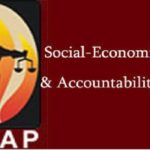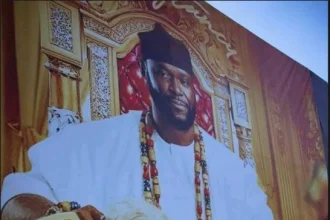The Socio-Economic Rights and Accountability Project has filed a lawsuit against the National Broadcasting Commission over the ban of Eedris Abdulkareem’s song ‘Tell Your Papa.’
The controversial song, which was released on April 7, addresses the economic struggles faced by many Nigerians and critiques the economic policies of President Bola Tinubu.
On April 10, the NBC prohibited radio and television stations from airing the track, labeling it as “objectionable.”
In the lawsuit filed on April 17 at the Federal High Court in Lagos, under the suit number FHC/L/CS/797/2025, SERAP is asking the court to overturn the “arbitrary and illegal” ban on the song. The rights group argues that the NBC’s action violates Nigerians’ rights to freedom of expression, media freedom, and access to information.
“The NBC is censoring music under the guise of ‘protecting public decency,'” SERAP said in the lawsuit. “Public decency is not a carte blanche for banning Eedris’ song and placing a chokehold on information and suppressing peaceful dissent.”
SERAP further asserted that freedom of expression is a cornerstone of any democratic society, which protects not just ideas that are favorably received, but also those that shock or disturb, particularly in political discourse and commentary on public affairs. The organization also emphasized that the ban has a “chilling effect” on freedom of expression and access to information.
SERAP contends that the NBC has not demonstrated that the song would pose a specific risk to any legitimate state interest that would justify its ban, asserting that the action does not meet the legal requirements of necessity or proportionality.
The group also highlighted that the ban violates both the Nigerian Constitution and international human rights agreements, including the African Charter on Human and Peoples’ Rights and the International Covenant on Civil and Political Rights.
SERAP’s legal team, which includes Kolawole Oluwadare, Oluwakemi Agunbiade, and Valentina Adegoke, argued that artistic creativity is essential for democratic societies, and the censorship of such works restricts artistic freedom and stifles public discourse. The group also pointed out that the NBC’s decision could cause serious social and economic damage, depriving artists of their livelihood.
While acknowledging that media freedom can be limited in cases of national security or public health, SERAP stressed that such limitations must meet the standards of being legal, necessary, and proportionate.
The court has yet to set a date for hearing the suit.











